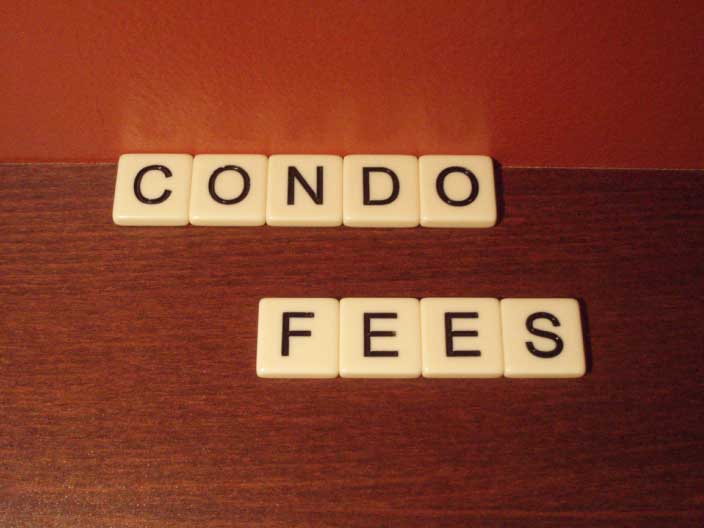Understanding Condo Fees in BC

If you’re interested in buying your first condo or townhouse then there are some additional costs you need to consider.
First-time condo/townhouse buyers will usually be confused by the monthly maintenance fee that is charged by condo buildings. They can add up to a large percentage of your total housing costs when you combine them with your property taxes and mortgage payments. But what is a condo maintenance fee (also called a condo or strata fee) and what will it cover? How does a strata fee compare to the costs associated with owning a house?
Every building requires maintenance to stay in good condition. To think otherwise would just be naïve.
The maintenance/condo/strata fee is your share of the total cost of maintaining the whole building.
- The condominium corporation is registered as a non-profit, therefore the strata council must use the money generated for the maintenance and operation costs of the condominium.
The strata fee each unit pays is calculated by dividing the total expenses of the unit entitlement (the square footage of each strata lot). This means that a two-bedroom unit will have higher strata fees than a studio apartment. The condo fees are also recalculated each year and may go up or down depending on the annual operating budget of the building.
The strata fee will vary between different areas and buildings. The rate will be determined by several factors including the age of the building, the management style, the contingency reserve fund (CRF) and amenities.
- Maintenance/condo/strata fees in Greater Vancouver typically range from $0.30 to $1.00 per square foot.
Where Does the Money from the Strata Fees Go?
There are two funds that must be maintained by every strata corporation in BC. They are the operating fund and the contingency reserve fund (CRF).
The operating funds are used to pay for the regular expenses that come up over the course of the year.
Some items are legally required to be included in the condo fees, these include insurance, Contingency Reserve Fund, and exterior maintenance. The other items are optional and depend on the building itself, the bylaws of the condo, and the preferences of the condo owners.
Condo fees can be used to pay for the following things:
- Insurance
- Contingency Reserve Fund
- Exterior Maintenance
- Electricity
- Heat
- Landscaping Costs
- Professional Management
- Water and Sewer
- Parking
- Amenities
- Recreational Activities
- Security Personnel
- Cable TV and Internet
- Caretaker Costs
Condo fees are based on the annual budget, most condo boards/strata councils set up monthly payments for homeowners.
Sometimes the heating, cable and internet costs will be included in the strata fee. This may increase the strata fee cost; however, those services could be offered for cheaper than it would cost to purchase them independently.
Some of the strata fee may go to cover amenities. Of course, it’s nice to have a gym and a swimming pool, but are you going to use them?
- Will they be worth your money?
- Remember that you must pay for amenities included in your strata fees even if you don’t use them.
Every condo is required to maintain a contingency reserve fund (CRF) by law. This fund covers any expenses that pop up less than once a year. It’s typically used in the upkeep of the building, such as financing a new roof, siding, windows/doors, parking, repairing heating and plumbing equipment.
The depreciation report can be used to help a strata council prepare for both annual and long-term repairs. It will also give an idea on the financial obligations for both the present and the future. Strata corporations stay in control of their long-term planning by making CRF contributions part of the annual budget. The amount for each year is decided on by a majority vote of the owners at the annual general meeting.
Do Your Homework
Smart condo buyers should review Strata and Annual General Meeting minutes along with the depreciation report to get a history of the building and any current outstanding issues.
The strata minutes will also provide you with a look at the management style of the building.
- Are the problems in the building fixed correctly, or are they just being repaired with temporary solutions that keep maintenance fees down?
- Does the management provide regular maintenance such as window cleaning and power washing?
- Higher strata fees in a building are usually the result of regular maintenance which will keep strata fees down in the long run.
You can also have a professional home inspector review the minutes to determine if what they see during the inspection is reflected in the minutes. The home inspector will help you gain an understanding of any special assessments and the depreciation report.
One last thing to consider is the “special assessments” category. These are one-time fees used for repairs that are not covered by the Contingency Reserve Fund. They may also be quite substantial, especially if you live in an older building.
One of the most important aspects of buying a condo is understanding what is covered by the monthly maintenance fees, so you can compare with other condos.
If you have questions about buying your first home, let’s have a chat.
Kelly Hudson
Mortgage Broker
Mortgage Architects
Mobile: 604-312-5009
Kelly@KellyHudsonMortgages.com






